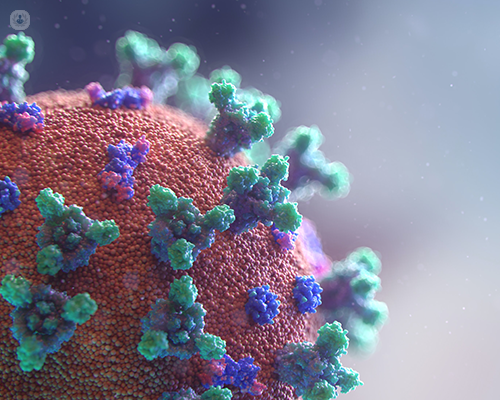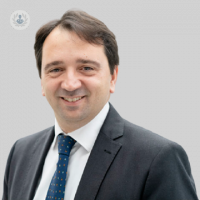COVID-19 guidance for congenital heart disease patients
Escrito por:Receive professional advice about congenital heart disease during the COVID-19 pandemic from Professor Di Salvo, a leading specialist and expert on this cardiac condition. By reading this article, you’ll discover if having congenital heart disease increases your risk of severe COVID-19 symptoms, which patients need to shield and why you mustn’t postpone seeking help or delay your interventional or surgical procedures.

Do congenital heart disease (CHD) patients have a higher risk of severe COVID-19 symptoms?
We recently published an Italian survey which collected data from congenital heart disease centres across all of Italy. We found that less congenital heart disease patients are severely affected by the coronavirus COVID-19 virus than patients with other heart disorders, such as coronary heart disease. Generally, very few congenital heart disease patients develop severe COVID-19 symptoms: the vast majority of cases of COVID-19 are mild for congenital heart disease patients.
There are a few factors that have a role in protecting patients with congenital heart disease and lowering the risk of severe symptoms.
- Patients with congenital heart disease are much less likely to have comorbidities (additional conditions) like obesity, hypercholesterolemia and hypertension (high blood pressure), which are risk factors for severe cases of COVID-19
- Congenital heart disease patients are generally younger compared to patients with coronary artery disease. Younger patients are less at risk of severe symptoms.
- In addition, families tend to protect their daughter\son with CHD, and this has happened before any lockdown. This protection may have helped in reducing the occurrence of COVID in CHD patients
Having said this, it’s important to remember that we are still learning and anything can change.
Do congenital heart disease patients need to shield?
Patients do not need to shield if they have simple congenital heart disease or if they have been treated and fully recovered, without major sequelae (a condition that results from a previous condition). They generally don’t need to take additional precautions: they’re asked to take the same precautions as the general public.
Patients do need to shield if they have complex congenital heart disease, if they are full-time patients or if they’re awaiting treatment.
If you haven’t already been advised on if you should shield, get in contact with your healthcare provider to find out.
Should patients with congenital heart disease continue taking any medication if they catch the virus?
So far, there is no evidence that medication commonly used to treat patients with congenital heart disease can affect the symptoms of COVID-19. There have been a lot of concerns in the last weeks about ACE inhibitors and COVID-19, but you should not stop using this kind of medication unless advised by your specialist.
How has COVID-19 affected treatment? Can interventional and surgical treatments go ahead?
During the crisis, all services were reduced. Also, many people have been afraid to go to the hospital for their scheduled appointments and/or postponed their treatment - either interventional or surgical - because they were afraid of catching COVID-19.
We want to reassure people that hospitals are safe and patients can start or continue treatment in a safe environment. Services are gradually returning to normal.
Why must patients attend appointments and not postpone treatment?
To delay seeking help or to postpone your interventional or surgical procedure can be dangerous. The fear of catching COVID-19 in clinics has created another crisis inside the COVID-19 crisis because many patients are overlooking their treatment and appointments.
For some patients, this could be even more dangerous than catching COVID-19. As services resume, we are now seeing many patients with a worse condition than expected because they missed their appointment for a consultation or interventional procedure. This is creating a new urgency. Make sure you attend all appointments as scheduled and if you have doubts about your condition, get in contact with your specialist.
Are current COVID treatments safe for congenital heart disease patients?
In general, yes, medications and treatments for COVID-19 are as safe for congenital heart disease patients as for other cardiac patients. However, what is ‘safe’ varies from patient to patient.
In principle, there is no general rule for congenital heart disease patients with COVID-19 because each one has their own individual needs. Treatment must be personalised.
Professor Di Salvo has extensive knowledge and skill in treating congenital heart disease among other cardiovascular conditions. Visit Professor Di Salvo’s profile to learn how he can help you and to get in touch.


